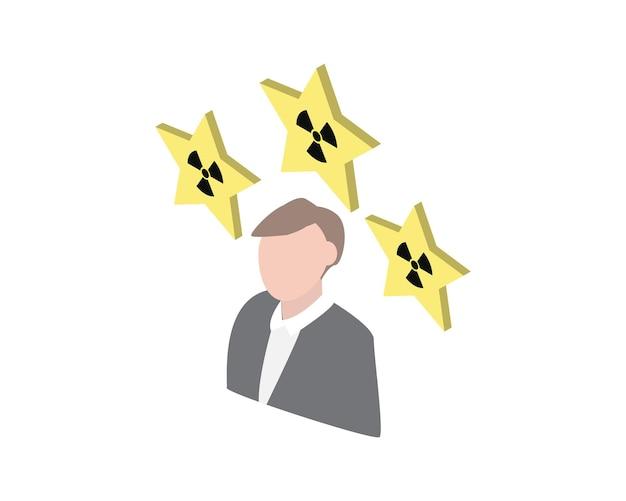Sales culture is important for any business. It defines the way salespeople interact with clients and colleagues, and it sets the tone for the overall workplace environment. But when sales culture becomes toxic, it can have detrimental effects on everyone involved. Toxic salespeople can create a negative work culture that leads to poor performance, high turnover rates, and low morale. So, how can you identify toxic sales culture, and what can you do about it? In this blog post, we’ll explore the answers to these questions and help you create a healthier sales culture for your business.
The Toxicity of Sales Cultures
Sales is undoubtedly an important aspect of any business. After all, it’s how a company makes money and grows. But when sales metrics become the sole focus, it can lead to toxic cultures that breed unhealthy competition and stress.
The Pressure to Perform
Sales reps are often under a lot of pressure to meet their targets. This can create a cutthroat environment where colleagues are pitted against each other. The focus on the numbers can also make reps feel like they’re constantly walking on eggshells. One mistake or missed target can result in a string of angry emails and stern reprimands from management.
The Art of Manipulation
Salespeople are known for their persuasive skills, but there’s a difference between persuasion and manipulation. In a toxic sales culture, reps may be encouraged to use sleazy tactics to close deals. This can include exaggerated claims, slick sales pitches, and even lying to customers. Not only is this unethical, but it can also damage customer relationships in the long run.
The Fear of Failure
Nobody wants to fail, but in a toxic sales culture, failure is not an option. This fear of failure can lead reps to work long hours, skip breaks, and sacrifice their health and well-being. It can also make them hesitant to ask for help, which can have disastrous consequences. When every deal is make or break, employees can quickly burn out.
The Need for Change
A toxic sales culture can be damaging to a company’s bottom line and its employees. It’s time to shift the focus away from metrics and onto employee well-being. By creating a positive work environment that encourages collaboration, learning, and growth, companies can create a sustainable sales culture that benefits everyone involved. It’s time to say goodbye to the toxic sales culture and hello to a brighter, healthier future.
Toxic Salespeople: A Survival Guide
Ah, the dreaded toxic salesperson – we’ve all encountered one at some point in our professional lives. It’s like dealing with a human embodiment of “car-salesman” stereotypes – pushy, conniving, and only interested in closing the deal, regardless of whether it’s a good fit for the customer or not. In this section, we’ll explore the various types of toxic salespeople you may encounter and how to deal with them like a pro.
The “Bulldozer”
This type of toxic salesperson is known for bulldozing their way through any objections or concerns you may have. They think they know what’s best for you, and they won’t take “no” for an answer. If you find yourself dealing with a bulldozer, try these tips:
- Stay calm and collected: Resist the urge to rise to their level of aggression. Keep a level head and remain rational in your responses.
- Be firm: Don’t give in to their tactics. Stand your ground and make your concerns known.
- Offer alternatives: Instead of saying “no,” offer a compromise or alternative solution that may better fit your needs.
The “Micromanager”
This type of toxic salesperson is obsessed with control. They may try to manage every aspect of the sales process, including your feedback and opinions. Dealing with a micromanager can be frustrating, but take heart – there are ways to navigate around their control-freak tendencies:
- Establish clear boundaries: Let them know what you’re responsible for and what they’re responsible for.
- Communicate regularly: Keep them in the loop with frequent updates and progress reports.
- Choose your battles: Decide which issues are worth fighting for and which ones aren’t.
The “Sleazeball”
This type of toxic salesperson oozes insincerity. They may use dirty tactics like lies and manipulation to get what they want. If you’re dealing with a sleazeball, here are some suggestions:
- Stay on guard: Don’t take everything they say at face value. Keep a healthy dose of skepticism.
- Get everything in writing: Make sure all promises are documented and agreed upon.
- Don’t be afraid to walk away: If it doesn’t feel right, it’s okay to say no and move on.
The “Ghost”
This type of toxic salesperson disappears without a trace. They may promise to follow up with you, but then you never hear from them again. Dealing with a ghost can be frustrating and time-consuming, but there are ways to handle the situation:
- Don’t chase them: Resist the urge to constantly follow up. It’s not worth your time or energy.
- Set a deadline: Give them a firm deadline to respond, and if they don’t meet it, move on to another option.
- Be clear about your expectations: Let them know upfront what you’re looking for in terms of follow-up and communication.
In conclusion, toxic salespeople are out there, but you don’t have to let them derail your sales process. By staying calm, firm, and open-minded, you can navigate around their toxic tendencies and close deals like a pro.
Dealing with Toxic Work Culture
No one should have to work in a toxic environment, but unfortunately, it’s all too common in many workplaces. If you’re dealing with a toxic work culture, here are some tips to help you navigate through it:
Speak Up!
The first step to dealing with a toxic work culture is to speak up and address the issue. It may be uncomfortable to raise the issue with your co-workers or superiors, but talking about the problem is the first step to finding a solution.
Set Boundaries
Setting boundaries is crucial when dealing with toxic work culture. Be clear about what behavior is acceptable and what is not. You should also be honest with yourself about your limits, and don’t let others push you past them.
Take Care of Yourself
Toxic work culture can be emotionally draining, and it’s important to take care of yourself. Make sure you’re exercising, eating healthy, and taking breaks when you need them. Remember to prioritize your mental health, too, by talking to a therapist or practicing stress management techniques.
Look for Support
Dealing with a toxic work culture can be isolating, but remember that you’re not alone. Look for support from friends, family, or even online communities. Knowing that others are going through similar experiences can help you feel less alone.
Consider Finding a New Job
If the toxic work culture becomes unbearable, it may be time to consider finding a new job. While quitting your job may not be the ideal solution, sometimes it’s the best one. Remember that your well-being and mental health should always come first.
Dealing with a toxic work culture is never easy, but with these tips, you can take steps to protect yourself and navigate through the situation. Remember to always prioritize your mental health and well-being, and don’t be afraid to speak up or seek support when you need it.
Toxic Work Culture: What Happens When Things Go South
A toxic work culture can be quite challenging to pinpoint, given its cloudy definition. The term refers to an environment where employees feel undervalued, overworked, and often subjected to bullying and harassment. Unfortunately, many companies have a history of fostering toxic work cultures.
Every Company Has Its Story
What is an example of a toxic work culture? There isn’t a definitive answer to this question since every company has its story. However, some common traits define a toxic work culture.
Rampant Micromanagement
Under micromanagement, employees feel like they have no autonomy and their every move is under scrutiny. This leads to frustration, stress, and a lack of job satisfaction.
Too Much Competition
In some companies, an intense culture of competition replaces collaboration among staff. Such companies, in general, may have a significant amount of negative backlash associated with their sales or products, thus promoting unhealthy rivalries.
No Clear Communication
In a toxic work culture, management could do a better job of communication to employees about significant organizational changes, leading to a lack of clarity and direction within the organization.
Exploitation and Unhealthy Projects
Toxic work culture can be often seen in companies that overwork employees and create unhealthy projects or demand unreasonable expectations. This can quickly deteriorate an essential sense of team spirit among employees.
In conclusion, the existence of toxic corporate culture is a considerable setback to any organization. It can lead to a lack of trust between management and employees, a reduction in productivity, and ultimately having an adverse impact on the bottom line.
What does a healthy sales culture look like
Welcome to the second section of this article on toxic sales culture. Now that we’ve discussed what a toxic sales culture looks like, let’s talk about the opposite – what a healthy sales culture looks like.
Communication is key
A healthy sales culture values communication above all else. Team members should feel comfortable asking questions, giving feedback, and discussing issues with their colleagues and management. The hierarchy should be flat, with open-door policies that encourage collaboration and teamwork.
Support and recognition
Sales is a tough job, and a healthy sales culture understands this. Managers should provide the resources necessary for success, including training, tools, and support. When a team member achieves success, they should be recognized and rewarded for their hard work.
Customer-centric approach
A healthy sales culture understands that customers are the lifeblood of the business. The customer’s needs and wants should be at the forefront of all sales discussions, with the focus on building long-term relationships. Pressure and coercion to close deals at all costs are not part of a healthy sales culture.
Transparency and accountability
Transparency and accountability are vital components of a healthy sales culture. Managers should provide clear expectations, targets, and feedback to their team members. Results should be measured objectively and frequently, with regular check-ins to identify areas of improvement and celebrate successes.
Work-life balance
Finally, a healthy sales culture recognizes that work-life balance is crucial to success. Sales can be a high-pressure job, but a healthy sales culture takes steps to prevent burnout and encourage work-life balance. This may include flexible scheduling, remote work opportunities, and mental health support.
In summary, a healthy sales culture values communication, support, customer centricity, transparency, accountability, and work-life balance. These elements create a positive work environment where team members feel valued, motivated, and empowered to succeed.



